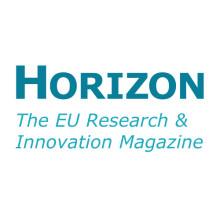Photograph credit score: Muntaka Chasant, reproduced underneath a CC BY-SA 4.0 license.
By Kaja Šeruga
Simply exterior the historic German city of Goslar, a sprawling industrial complicated receives an infinite stream of discarded electronics. On arrival, this digital waste is laboriously ready for recycling.
Electrocycling GmbH is among the largest e-waste recycling services in Europe. Yearly, it processes as much as 80 000 tonnes of digital waste, which is available in all shapes and types.
Handbook dismantling
Regardless of a formidable array of equipment, greater than half of the positioning’s workers manually put together the discarded gadgets for recycling. They do that by sorting the incoming waste and eradicating batteries, that are a hearth hazard and a significant problem in e-waste recycling.
“There are increasingly more gadgets, they’re getting smaller, and so they all include lithium batteries, a few of that are completely put in, soldered or glued in place,” mentioned Hannes Fröhlich, Electrocycling’s managing director.
“It’s not a dream job, dismantling these home equipment every single day with hammers and pliers. I feel we are able to do higher.”
A few of these tedious duties may very well be carried out by robots. Nevertheless, the issue is that each time there’s a change within the product or the method, the {hardware} and software program have to be restructured. This may be pricey and time-consuming.
To handle this situation, an EU-funded analysis initiative named ReconCycle has managed to automate the method by creating robots that may reconfigure themselves for various duties.
New territory for robotics
Researchers from Slovenia, Germany and Italy labored collectively on this situation on the Jožef Stefan Institute, Slovenia’s main analysis facility, from 2020 to 2024.
The crew developed adaptable AI-supported robots which might be capable of take away batteries from smoke detectors and radiator warmth metres.
These two merchandise will be present in most households and are changed each 5 to eight years, creating giant quantities of waste.
“The primary problem is that there are such a lot of completely different variations of every system. Simply assume what number of completely different distant controls there are,” mentioned Dr Aleš Ude. He’s head of the Division of Automatics, Biocybernetics and Robotics on the Jožef Stefan Institute and coordinates the ReconCycle analysis crew.
In industrial settings, robots are often programmed for one particular process, repeating precisely the identical sequence of actions in a predictable setting.
As an alternative, the researchers got down to create a robotic that may adapt to many alternative duties, utilizing state-of-the-art AI.
“We needed to increase robotics, introduce robots the place there aren’t any but,” Ude mentioned.
A rising drawback
Working with Electrocycling, Ude’s worldwide analysis crew created an adaptable robotic work cell. It is a workspace that consists of a minimum of one robotic, its instruments and gear, and its controller.
The novelty right here is that this closed system autonomously adapts itself to varied duties, with the assistance of complicated AI-driven software program and modular {hardware} that may be shortly reconfigured. It additionally makes use of mushy parts like SoftHand, a human-like hand that may manipulate objects with nice precision.
There are additionally security options like collaborative robots and emergency cease buttons.
Worldwide collaboration was essential in securing the appropriate experience, mentioned Ude.
“Robotics could be very interdisciplinary, so it’s tough to search out the appropriate companions in a single nation.”
Fortunately, the brand new robots are arriving simply on the proper time, as the quantity of e-waste produced yearly continues to develop. Nearly 5 million tonnes of e-waste are produced within the EU every year, amounting to about 11 kilograms per individual. Lower than 40% of that’s recycled, the European Parliament has warned.
Globally, round 62 million tonnes of e-waste have been produced in 2022 alone, sufficient to fill 1.5 million 40-tonne vehicles, in accordance with UN knowledge. Much more worryingly, the quantity of e-waste is rising 5 instances quicker than the quantity that’s being recycled.
The EU is working to scale back e-waste by the Waste from Electrical and Digital Tools Directive, which units the requirements for assortment and recycling.
The work of Ude’s crew can also be aligned with the EU’s digital technique, which inspires using AI in manufacturing to enhance effectivity and assist obtain local weather neutrality by 2050.
Throwing away cash
E-waste additionally has critical financial implications. An estimated €84 billion is misplaced every year when priceless metals like copper, iron and gold are discarded as a substitute of being reused, in accordance with the UN’s international e-waste monitor.
At Electrocycling, 80% of the e-waste is recovered as uncooked supplies, equivalent to iron, zinc, gold, silver and palladium – some 35 supplies in all.
“Individuals want to grasp that this isn’t simply waste, but in addition uncooked supplies that have to be recycled and stored in circulation, each for financial effectivity and a discount of CO2,” mentioned Fröhlich.
New know-how could make it much more environment friendly, and Fröhlich sees quite a lot of potential in it.
“I used to be shocked by how far the know-how and AI have already come,” he mentioned. “They even recreated a human hand for the robotic.”
Ude hopes to proceed working with Electrocycling to enhance e-waste options additional. The hope can also be that adaptable robots which may deal with altering environments may have functions far past e-waste recycling.
Given extra time and growth, these robots may even deal with normal housekeeping, or help carers in senior properties, mentioned Ude.
“Robotics may very well be of nice assist in such areas.”
This text was initially revealed in Horizon, the EU Analysis and Innovation journal.
Horizon Journal
brings you the most recent information and options about thought-provoking science and modern analysis initiatives funded by the EU.

Horizon Journal
brings you the most recent information and options about thought-provoking science and modern analysis initiatives funded by the EU.

